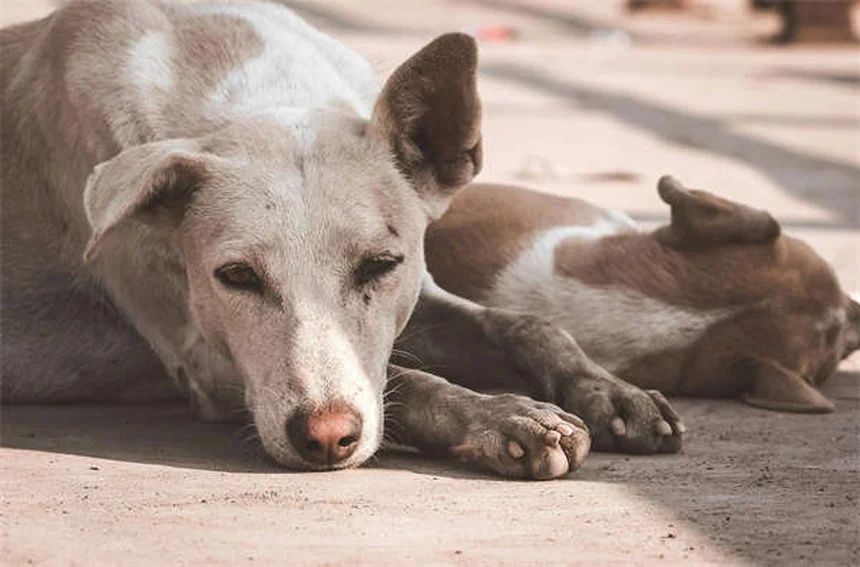What is IMM in horses? The answer is: Immune-mediated myositis (IMM) is a genetic muscle disorder that causes rapid muscle wasting in Quarter Horses and related breeds. If you've noticed your horse suddenly losing muscle along its topline and hindquarters, you might be dealing with IMM. I've worked with many horse owners facing this condition, and here's what you need to know right away: while the muscle loss looks alarming, most horses recover completely within 2-3 months. The key is working closely with your vet to manage this condition properly. In this guide, we'll break down everything from symptoms to treatment options, giving you the knowledge you need to care for your horse effectively.
E.g. :Anhidrosis in Horses: 7 Critical Signs Your Horse Can't Sweat Properly
Advertisement
- 1、Understanding IMM in Horses
- 2、What Triggers IMM in Horses?
- 3、Diagnosing IMM - What to Expect
- 4、Treatment Options for IMM
- 5、Living With an IMM Horse
- 6、Common Questions About IMM
- 7、Beyond the Basics: Exploring IMM in Depth
- 8、Prevention Strategies You Haven't Heard About
- 9、Breeding Considerations for IMM
- 10、Real-Life Success Stories
- 11、Your Role in IMM Management
- 12、Looking Ahead: IMM Research Breakthroughs
- 13、FAQs
Understanding IMM in Horses
What Exactly Is This Condition?
Let me break it down for you - Immune-mediated myositis (IMM) is like your horse's immune system getting confused and attacking its own muscles. Imagine your body suddenly deciding your biceps are the enemy! This condition mainly affects Quarter Horses and related breeds, causing rapid muscle loss along their back and hindquarters.
The science behind it involves a gene called MYH1. Here's an interesting fact: while about 7% of Quarter Horses carry this mutation, it's way more common in certain performance lines. Check out these numbers:
| Discipline | Mutation Rate |
|---|---|
| Reining Horses | 24% |
| Working Cow Horses | 17% |
| Halter Horses | 16% |
How Would You Recognize IMM?
Picture this: one week your horse looks perfectly fit, the next week it seems like someone deflated its muscles! That's how fast IMM works. The most noticeable changes happen along the topline - the neck, back, and hindquarters suddenly appear sunken or "carved out."
Now, here's something important to remember: not every horse with the gene shows symptoms. It's like having the recipe for disaster but never actually baking the cake. But if you do notice these changes, don't panic - just call your vet pronto!
What Triggers IMM in Horses?
 Photos provided by pixabay
Photos provided by pixabay
The Genetic Component
Think of IMM like inheriting your grandma's blue eyes - except way less charming. Horses get this condition through their DNA, specifically from the MYH1 gene mutation. Here's the kicker: a horse needs just one copy from either parent to potentially develop IMM, but those with two copies (we call this homozygous) are at higher risk.
Did you know this same gene can cause two different conditions? It's like a fork in the road - one path leads to IMM, the other to something called non-exertional rhabdomyolysis. Scientists are still figuring out why some horses develop one condition and not the other.
Environmental Triggers
Now here's where it gets tricky. We don't know all the exact triggers, but we've noticed some patterns:
- Intramuscular injections - like giving shots in the muscle
- Strangles vaccination
- Getting multiple vaccines at once
Ever wonder why your vet spreads out vaccines? This is exactly why! Giving them separately reduces the chance of triggering an IMM episode.
Diagnosing IMM - What to Expect
The Vet Visit
When you bring your horse in suspecting IMM, your vet will likely do three things:
- A thorough physical exam (they'll check all those shrinking muscles)
- Blood work to rule out other conditions
- A simple genetic test using - get this - just a few hairs from your horse's mane!
The genetic test is so easy it's almost funny. No needles, no sedation - just pluck some hairs and send them to the lab. Talk about modern science!
 Photos provided by pixabay
Photos provided by pixabay
The Genetic Component
In some cases, your vet might suggest a muscle biopsy. This sounds scarier than it is - they'll sedate your horse and take a tiny sample of muscle tissue. The area might need a stitch or two, but most horses bounce back quickly.
Here's a pro tip: biopsies aren't as common anymore since we have that handy genetic test. But sometimes they're still useful to confirm what's happening at the muscle level.
Treatment Options for IMM
The Good News About Recovery
Here's the silver lining: most horses recover completely within 2-3 months, whether they get treatment or not. The muscles basically "remember" how to rebuild themselves. Isn't the body amazing?
But what if your horse is a competitive athlete? In those cases, vets might recommend corticosteroids to speed up recovery. Think of it like giving your horse's muscles a turbo boost in the rebuilding process.
Managing Future Risks
Once your horse has had one IMM episode, it's more likely to happen again. That's why prevention becomes key. The biggest thing? Being super careful with intramuscular injections.
Your vet might suggest:
- Spacing out vaccines by 4-6 weeks
- Avoiding unnecessary injections
- Considering alternative administration methods when possible
Living With an IMM Horse
 Photos provided by pixabay
Photos provided by pixabay
The Genetic Component
Here's a question I get all the time: "What special food does my IMM horse need?" The answer might surprise you - nothing special at all! Just maintain a balanced diet as recommended by your vet.
That said, some vets might suggest muscle health supplements. These aren't magic pills, but they can support overall muscle function during recovery.
Exercise and Activity
During recovery, go easy on the workouts. Think of it like coming back from a sports injury - you wouldn't run a marathon the day after spraining your ankle, right? Same principle applies here.
As your horse regains muscle, gradually increase activity. And here's a fun fact: many IMM horses return to full performance capability after recovery!
Common Questions About IMM
Is IMM Always Genetic?
You bet it is! Remember that MYH1 gene we talked about? It's passed down from parent to foal. But here's the twist - having the gene doesn't guarantee symptoms. It's like carrying an umbrella every day - you only need it when it rains.
Vaccination Precautions
This is crucial: always discuss vaccination plans with your vet if your horse has IMM. They might recommend:
- Subcutaneous instead of intramuscular injections
- Spreading out vaccine administration
- Monitoring closely after any injections
Remember, knowledge is power when it comes to managing IMM. The more you understand, the better you can care for your equine friend!
Beyond the Basics: Exploring IMM in Depth
The Science Behind Muscle Breakdown
Ever wonder what's actually happening inside your horse's muscles during an IMM episode? It's like a case of mistaken identity - the immune system starts attacking type 2 muscle fibers specifically. These are the fast-twitch fibers responsible for quick, powerful movements. No wonder affected horses show such dramatic muscle loss!
Here's something fascinating: researchers have found that IMM horses often have elevated levels of certain antibodies in their blood. It's like their immune system left the "on" switch stuck in the attack position. The good news? These levels typically return to normal as the horse recovers.
Comparing IMM to Other Muscle Disorders
Let's clear up some confusion - IMM isn't the same as tying-up or other muscle conditions. Check out this quick comparison:
| Condition | Onset | Primary Affected Area | Genetic Component |
|---|---|---|---|
| IMM | Rapid (days) | Topline muscles | Yes (MYH1 gene) |
| Tying-up | During/after exercise | Hindquarters | Sometimes |
| PSSM | Variable | Multiple muscle groups | Yes (different gene) |
See how IMM stands out? That rapid onset is like nothing else in equine medicine. It's what makes this condition both fascinating and concerning for horse owners.
Prevention Strategies You Haven't Heard About
Alternative Vaccination Approaches
Did you know some vets are getting creative with vaccination protocols for at-risk horses? Instead of traditional shots, they might recommend:
- Intranasal vaccines when available
- Subcutaneous injections (under the skin instead of in muscle)
- Oral vaccines for certain diseases
Here's a pro tip: always ask your vet about the latest options. Vaccine technology improves constantly, and there might be new alternatives perfect for your IMM-prone horse.
The Power of Record Keeping
Want to be a superstar horse owner? Start a health journal! Track every vaccine, injection, and health event. Why? Because you might spot patterns no one else notices.
Imagine discovering that your horse reacts two weeks after a particular vaccine combination. That's gold for preventing future IMM episodes! Plus, your vet will love you for bringing such detailed records to appointments.
Breeding Considerations for IMM
Making Smart Breeding Decisions
Here's a question that keeps breeders up at night: "Should I breed a horse that carries the MYH1 mutation?" The answer isn't simple. While the gene is common in certain bloodlines, many carriers never show symptoms.
Some breeders are taking an interesting approach - they test all breeding stock and aim to avoid creating homozygous (two-copy) foals. It's like playing genetic matchmaker to reduce risk while preserving valuable traits.
The Future of Genetic Testing
Get ready for some exciting news - researchers are working on even more advanced tests that could predict which horses are most likely to develop symptoms. Imagine knowing your horse's exact risk level before any signs appear!
These future tests might look at other genes that interact with MYH1 or measure specific immune markers. It's like having a crystal ball for your horse's health - and who wouldn't want that?
Real-Life Success Stories
Comeback Horses That Inspire
Let me tell you about a reining horse named Sparky (name changed for privacy). He lost nearly 30% of his topline muscle in two weeks from IMM. His owner was devastated - until three months later when Sparky not only regained all his muscle but went on to win at a major competition!
Stories like this remind us that IMM doesn't have to be career-ending. With proper care and patience, many horses return to peak performance. It's like they get a second chance to shine.
What Top Trainers Are Doing Differently
Smart trainers with IMM-experienced horses are changing their approaches. Instead of intense training cycles, they're focusing on:
- Longer warm-up periods
- More frequent rest days
- Regular muscle condition monitoring
One trainer even takes weekly photos of her horse's topline to track subtle changes. Now that's dedication! The lesson? Adapting your program can make all the difference for an IMM horse.
Your Role in IMM Management
Becoming an Observant Owner
Here's something I can't stress enough: you know your horse better than anyone. Those subtle changes in muscle tone or movement? You'll notice them first. Trust your instincts - if something seems off, it probably is.
Make muscle checks part of your regular grooming routine. Run your hands along the topline while brushing. Notice any dips or changes? That's your early warning system at work!
Building Your Support Team
Managing IMM isn't a solo mission. Your dream team should include:
- A vet experienced with muscle disorders
- A knowledgeable farrier (hoof balance affects muscle use)
- A nutritionist familiar with muscle recovery
- Other IMM horse owners for moral support
Remember what they say - it takes a village to raise a child? Well, it takes a team to manage IMM successfully. Don't be afraid to assemble yours!
Looking Ahead: IMM Research Breakthroughs
Exciting Studies on the Horizon
Researchers are currently exploring whether certain supplements might help prevent IMM episodes. Early studies on antioxidants and omega-3 fatty acids show promise - though it's too soon for definitive answers.
Another fascinating area? The gut microbiome. Scientists are investigating whether gut health influences IMM risk. Who knew those gut bacteria might affect muscle health too?
The Promise of Personalized Medicine
Imagine a future where your horse gets a customized health plan based on their exact genetic risk factors. That's where we're headed! Some vet schools are already testing personalized approaches for IMM horses.
This could mean tailored vaccination schedules, specific exercise regimens, and individualized supplement plans. It's like having a health GPS designed just for your horse!
E.g. :MYHM: IMM/Nonexertional Rhabdomyolysis | School of Veterinary ...
FAQs
Q: How quickly does IMM progress in horses?
A: IMM progresses alarmingly fast - we're talking about visible muscle loss within just 7 days! Picture this: your perfectly fit Quarter Horse can lose up to 50% of its topline and hindquarter muscle mass in a week. That's why it's so shocking for owners when they first notice it. The good news? This rapid progression typically stabilizes quickly, and the recovery process begins. Most horses I've worked with start showing improvement within a few weeks, with full recovery taking about 2-3 months. The key is not to panic when you first see the changes - just get your vet involved immediately.
Q: Can any horse get IMM, or is it breed-specific?
A: Here's the deal - IMM primarily affects Quarter Horses and related breeds like Thoroughbreds with Quarter Horse lineage. The condition is linked to a specific gene mutation (MYH1) that's especially common in certain performance lines. For example, about 24% of reining horses carry this mutation. While other breeds might theoretically develop similar conditions, true IMM as we're discussing here is almost exclusively found in these bloodlines. If you own a Quarter Horse, especially from working or show lines, it's worth being aware of this condition and its symptoms.
Q: What's the first thing I should do if I suspect my horse has IMM?
A: Call your veterinarian immediately - that's always step one. While IMM isn't typically life-threatening, the rapid muscle loss can be scary, and you'll want to rule out other serious conditions. What I recommend to my clients is to take clear photos of the muscle loss from multiple angles before the vet arrives - this helps document the progression. Also, be prepared to discuss your horse's recent vaccination history and any injections they've received, as these can sometimes trigger IMM episodes. Your vet will likely want to do a simple genetic test (using mane hairs!) to confirm the diagnosis.
Q: Are there any long-term effects of IMM on my horse?
A: The great news is that most horses recover completely with no lasting effects! In my experience, properly managed IMM cases typically return to full work and performance levels after recovery. However, there are two important caveats: first, horses that have had one IMM episode are more likely to have recurrences. Second, horses with two copies of the gene mutation (homozygous) tend to have more severe cases. The key to long-term management is being vigilant about potential triggers, especially with vaccinations and intramuscular injections.
Q: Should I change my horse's diet if they have IMM?
A: Here's what surprises many owners: no major diet changes are typically needed for IMM horses. While you might be tempted to load up on special supplements, the truth is that a balanced diet approved by your vet is usually sufficient. That said, some vets might recommend specific muscle-support supplements during recovery. The most important dietary advice I give clients is to maintain consistent, quality nutrition - sudden changes can stress your horse's system. If your horse loses significant weight during an IMM episode, your vet might suggest temporary adjustments, but these would be case-specific.

